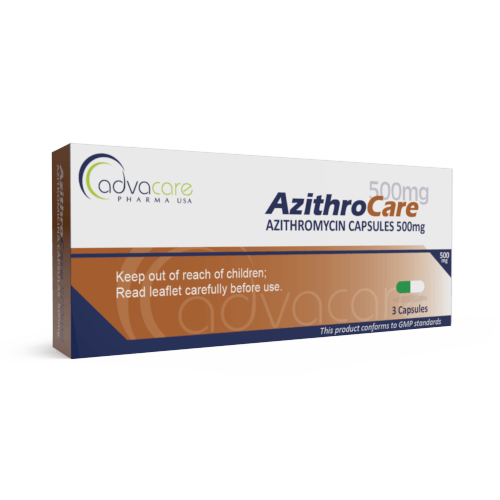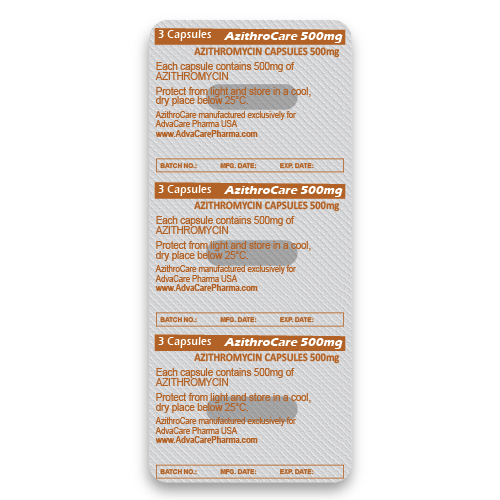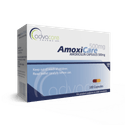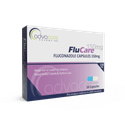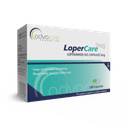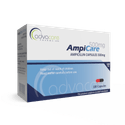- Home›
- Pharmaceuticals›
- Capsules›
- Azithromycin Capsules
Azithromycin Capsules
Dosage
Packaging
What is Azithromycin?
Active Ingredients: Azithromycin
Azithromycin Capsules is an antibiotic drug used to treat a wide range of bacterial infections, such as pneumonia, infections of the nose and throat, skin infections, Lyme disease, and some sexually transmitted infections. Azithromycin may be used by patients with hypersensitivity to penicillin. It is mainly used for the treatment of respiratory, enteric, and genitourinary infections. Pharmaceutical professionals compare this drug with erythromycin.
Azithromycin, like all antibiotics, is not useful for the treatment of viral infections, such as the common cold.
Azithromycin is a broad-spectrum, semi-synthetic macrolide antibiotic. It is within the subclass known as azalides. It has been approved by the FDA in 1991. The active ingredient works by inhibiting bacterial protein synthesis, which kills bacterial cells and prevents the growth of new ones. Azithromycin is effective against many gram-positive and gram-negative bacteria. This antibiotic also has an immunomodulatory effect and can be very helpful in the treatment process of chronic respiratory infections.
When bacteria enter the human body, they replicate by protein synthesis due to the ribosomal proteins. This antibiotic binds to the 23S rRNA of the bacterial 50S ribosomal subunit, which inhibits bacterial replication. All macrolides bind to the bacterial ribosomes, which leads to broad-spectrum antibacterial activity.
This antibiotic is highly stable at a low pH, and this leads to a longer serum half-life and increases its tissue concentrations. After oral intake, the bioavailability of this antibiotic is 37%. Food does not affect its absorption. This antibiotic is widely distributed in tissues, and the azithromycin concentrations are higher in tissues than in plasma or serum. Lungs, tonsils, and prostate are the organs that can reach a very high rate of azithromycin. This drug binds to the serum protein in humans, and the metabolism is through the liver-it is eliminated by the liver. The excretion is through the biliary path. It is excreted as unchanged. Around 6% of the drug is excreted by the urine as an unchanged drug. The half-life of the drug is 68 hours.
The specific property of this drug is that it can concentrate in macrophages and polymorphonucleocytes and show great activity against Chlamydia trachomatis. Its concentration in phagocytes and fibroblasts might lead to a better distribution to inflamed tissues.
Recently, this drug was used as a COVID-19 treatment with the anti-malaria drug (hydroxychloroquine). The results from the treatment process are positive, but it is yet to be investigated.
This drug is also available in the form of a tablet and powder for suspension.
AdvaCare Pharma is a manufacturer and supplier of Azithromycin Capsules. We offer a wide range of high-quality and cost-effective medical supplies that are available for distribution. Our medications are produced in our GMP-certified facilities in China, India, and the USA.
Why are we a quality Azithromycin manufacturer?
AdvaCare Pharma is a GMP manufacturer of Azithromycin Capsules. Our strategically located facilities ensure that our company has complete control over the supply chain, meaning higher quality products and lower costs for production, transportation and importation. Over the past 20 years, we have built a solid reputation as a leading Azithromycin manufacturer, one of the 60+ products we manufacture in capsule dosage form, across 65 countries where our pharmaceutical products are distributed.
Uses
What is Azithromycin used for?
It is used to treat some types of bacterial infection, such as:
- pneumonia
- bronchitis
- sinusitis
- community-acquired pneumonia (CAP)
- sexually transmitted infections, such as chlamydia and gonorrhea
- disseminated Mycobacterium avium complex (MAC) infection
- strep throat
- traveler's diarrhea
- chronic pulmonary infection caused by P.aeruginosa in cystic fibrosis
- non-gonococcal urethritis
- pharyngitis/tonsillitis
- skin and soft tissue infections
- otitis media
How should Azithromycin Capsules be used?
This medication is manufactured to be taken orally. Azithromycin Capsules should be taken once a day, preferably at the same time. They should be taken with a glass of water. Azithromycin Capsules should be taken 1 hour before a meal or 2 hours after eating.
What dose should be taken?
The usual dose for adults is 250-500mg.
The exact dose for children 6 months and older is based on medical condition, response to the treatment, age, and weight. Refer to a doctor or pharmacist for guidelines on dosage. Do not exceed what they advise.
Who can use Azithromycin Capsules?
Azithromycin Capsules can be used by individuals who are suffering from bacterial infections in the respiratory, gastrointestinal, or genitourinary tract. Special cautions must be taken in different groups of patients.
Neonates This drug should not be administered to neonates because this form of the drug is indigestible for neonates. However, other forms of the drug can be used for the treatment of Chlamydia conjunctivitis.
Pregnant This drug is categorized as a Pregnancy Category B drug. In animal studies on rats and mice, this drug showed no harmful effects on the fetus. There are not many available human studies on pregnant women. Animal studies are not very good for comparison with humans, so Azithromycin should be used only when necessary. The benefits of the drug should outweigh the risks.
Nursing Mothers There are no studies that prove that this drug is excreted through the mother’s milk, so this drug should be used with caution. Lactating women who take this drug should be carefully observed, and also their babies must be observed. This drug should be administered to nursing mothers only if the benefits outweigh the risks for both the baby and the mother.
Humans with Liver Impairment This drug is metabolized and eliminated by the liver. Special caution should be taken if the patients have a decreased hepatic function. Liver impairment in humans might lead to some side effects if the drug is not well metabolized.
Elderly Studies on elderly patients show that this drug does not have any significant side effects. However, the absorption rate in older patients is slower than in younger patients. The determination of the dosage should remain the same, it should be only lower in cases when the patients have renal impairment.
Can Azithromycin Capsules be effective in the treatment process of viral infections?
No, Azithromycin Capsules are mainly prescribed for the treatment process of bacterial infections. However, this drug might be used for the treatment of some secondary bacterial complications due to viral infections, only if the bacteria are susceptible to the antibiotic. Azithromycin also shows immunomodulatory properties, and recently it has been used for the treatment process of COVID-19.
How can Azithromycin Capsules help in the treatment process of COVID-19?
This drug has in vitro activity against SARS-CoV-2 and acts at different points of the viral cycle. It downregulates cytokine production and maintains epithelial cell integrity, prevent lung fibrosis, and reduce the mortality and ventilation days in other viral infections. It is used mainly with hydroxychloroquine.
Other warnings
Patients should have balanced electrolyte levels before the treatment process starts. Also, some individuals might show resistance to this antibiotic due to uncontrolled antibiotic usage.
ECG should be performed before and during the treatment.
This antibiotic might lead to superinfection with non-susceptible organisms.
Serum electrolytes and liver function should be monitored during or after the treatment process.
Antacids should be avoided 2 hours before and after the Azithromycin intake.
Patients with cardiac arrhythmias should avoid this drug because it can lead to a QT prolongation.
If serious diarrhea occurs, the dose should be reduced, or the treatment process should be stopped.
Side Effects
As with all pharmaceuticals, some unwanted effects can occur from the use of Azithromycin Capsules.
Common side effects include, but may not be limited to:
- mild diarrhea
- stomach pain and dizziness
- itching
- loss of appetite
- mild fever
- sleep problems
Seek medical attention if the following develop:
- watery or bloody diarrhea
- hives
- difficulty breathing
- irregular or fast heartbeat
- severe stomach or abdominal pain
- swelling of the face, lips, tongue, or throat
- unusually severe body reaction
The main concerns of this antibiotic are:
- gastrointestinal disturbances
- QT-interval prolongation
- hepatic metabolism inhibition
For a comprehensive understanding of all potential side effects, consult a medical professional.
If any symptoms persist or worsen, or you notice any other symptoms, please call your doctor.
Precautions
Do NOT use Azithromycin Capsules if:
- You have had jaundice or liver problems caused by taking azithromycin.
- You are allergic to azithromycin or similar drugs, such as erythromycin, clarithromycin, telithromycin, or troleandomycin.
If some adverse allergic reactions are noticed after the initial treatment with Azithromycin, it should be reported to a doctor immediately.
This drug should not be used in a concomitant administration with astemizole, cisapride, pimozide, or terfenadine. It can lead to a fatal cardiac arrhythmia and lead to QT prolongation, ventricular fibrillation, ventricular tachycardia, and torsades de pointes.
If patients do not feel improvement during the first days of the treatment process, they should inform their doctor.
The drug should be consumed until the whole dosage is taken, even if the patient has a significant improvement.
If patients skip a dose, they should not take double doses. They should proceed to the next scheduled dose.
This medication should be consumed only by the patient who has the prescription.
Patients should inform their doctors if they are breastfeeding, pregnant, or planning to stay pregnant.
Possible interactions may occur with other pharmaceutical products. Consult with a doctor or pharmacist about any medications you are taking before beginning treatment.
During the treatment with Azithromycin, patients should not consume alcohol.
This drug should be kept out of reach of children.
Azithromycin 500mg: Why the most common dose?
Azithromycin 500mg is standard for treating bacterial infections, offering a potent antibiotic effect. This dose covers a wide range of infections and ensures compliance due to the shorter course of therapy. Lower doses, such as Azithromycin 250mg, are available for milder infections.
References
Azithromycin for Prevention of Exacerbations of COPD
Chronic obstructive pulmonary disease (COPD) are often treated with macrolide antibiotics because it can reduce acute exacerbations in patients. This is a randomized trial that determined whether azithromycin can reduce the exacerbations.
This study included 1577 patients, 1142 (72%) received azithromycin (250mg daily) and the remaining patients received a placebo. Patients who received azithromycin had a median time of 266 days after they showed the first exacerbation (95% confidence interval [CI], 227 to 313), compared with 174 days (95% CI, 143 to 215) among participants receiving placebo (P < 0.001).
The conclusion is that azithromycin taken daily for 1 year in patients with COPD can decrease the frequency of exacerbations and improve the quality of life.
Azithromycin in the treatment of COVID-19: a review
This research was performed to examine the efficacy of azithromycin in cases of SARS-CoV-2 during the COVID-19 pandemic. It was shown that this antibiotic has immunomodulatory properties that regulate cytokine production, maintain epithelial cell integrity, and prevent lung fibrosis.
The efficacy of antibiotics in cases of COVID-19 has yet to be determined, but this antibiotic has several positive effects and can prevent secondary bacterial infections.
You might be interested in...
Why AdvaCare Pharma?
As an industry leader, we are aware of our responsibility to provide affordable and sustainable solutions to improve healthcare worldwide.
